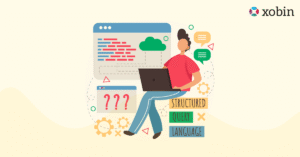Imagine a high-performing team struggling despite having technically skilled employees. Conflicts arise, communication breaks down, and projects stall not because of lack of talent, but because team members can’t navigate emotions and relationships effectively. This is where emotional intelligence makes the difference. Forward-thinking leaders are now turning to Emotional Intelligence Assessment to spot candidates who not only excel in skills but also thrive in complex workplace dynamics.
Table of Contents
This blog explores everything you need to know about candidate emotional intelligence assessment for recruitment, key traits to measure, the types of EQ assessments, and the practical steps for conducting them using actionable strategies.
TL;DR – Key Takeaways!
- Emotional Intelligence Assessment evaluates a candidate’s ability to manage emotions, empathize, and collaborate effectively.
- Key traits to measure include self-awareness, self-regulation, motivation, empathy, and social skills.
- Types of EI assessments: self-report questionnaires, 360-degree feedback, SJTs, behavioral interviews, and AI-powered assessment tools.
- Benefits include faster identification of top talent, improved team dynamics, leadership development, reduced turnover, and data-driven hiring decisions.
- Steps to conduct an assessment: define objectives → select tools → integrate workflow → administer → analyze → apply insights → continuous improvement.
- Advanced psychometric testing platforms streamline assessments, offering predictive analytics and actionable insights for smarter hiring decisions.
What is an emotional intelligence assessment?
An emotional intelligence assessment is a psychometric evaluation designed to measure an individual’s ability to recognize, understand, manage, and influence emotions, both their own and those of others. Moreover, the EI tests focus on the interpersonal and intrapersonal capabilities that define workplace success.
The emotional quotient test for hiring has emerged as a differentiator in talent acquisition. Research shows that candidates with high emotional intelligence often demonstrate better collaboration, adaptability, and leadership skills. This makes emotional intelligence measurement a strategic tool for identifying top talent efficiently.
By assessing a candidate’s emotional intelligence, organizations can:
- Predict cultural fit and team compatibility
- Reduce turnover by selecting candidates who align with company values
- Enhance leadership pipelines by identifying emotionally resilient future leaders
Xobin’s advanced emotional ability assessment provides AI-driven insights that simplify this process. It combines data analytics with psychometric rigor, allowing recruiters to assess emotional intelligence during recruitment efficiently without compromising accuracy.
Key Emotional Intelligence Traits to Measure in Candidates
When evaluating candidates, understanding key traits of emotional intelligence is critical. These traits not only indicate how a candidate will perform individually but also how they will collaborate, lead, and navigate challenges within teams.
Here are the most essential candidate emotional intelligence traits to consider:
Self-Awareness
Self-awareness reflects a candidate’s ability to understand their emotions, strengths, and weaknesses. Individuals with high self-awareness can adapt their behavior according to situational demands, which is essential for leadership and interpersonal effectiveness.
Self-Regulation
Self-regulation measures how well a candidate controls impulses and manages stress. Those with strong self-regulation skills maintain composure in high-pressure situations, contributing to better decision-making.
Motivation
Intrinsic motivation is a key indicator of high performers. Candidates who are self-motivated tend to be goal-oriented, persistent, and proactive in problem-solving.
Empathy
Empathy is the cornerstone of emotional intelligence. Candidates who can understand and respond to others’ emotions are more effective communicators, collaborators, and leaders.
Social Skills
Social skills encompass conflict resolution, influence, and relationship management. Strong social skills enhance team cohesion, foster trust, and drive organizational success.
Types of Emotional Intelligence Assessment
There are multiple approaches to measuring emotional intelligence in the hiring process, each with its own methodology and applications. Understanding these can help you choose the most suitable type of psychometric tests for emotional intelligence.
Self-Report Questionnaires
These assessments ask candidates to rate their own emotional competencies. They are cost-effective and easy to administer but may be subject to self-bias. For Example, an emotional quotient test for hiring that measures self-perception of emotional skills.
360-Degree Assessments
In this method, feedback is gathered from peers, managers, and subordinates to evaluate a candidate’s emotional intelligence. It provides a more comprehensive view of interpersonal behavior but is more time-intensive.
Situational Judgment Tests (SJTs)
Situational judgment tests present candidates with hypothetical workplace scenarios to evaluate decision-making and emotional responses. They help identify practical applications of emotional intelligence skills for leaders.
Behavioral Interviews
Structured interviews using behavioral questions to assess emotional intelligence reveal how candidates have handled emotional situations in the past. This method is highly predictive of future behavior.
AI-Powered EI Assessment Tools
Modern online assessment platform, leverage AI and predictive analytics to deliver fast, accurate insights into candidate emotional intelligence. These tools reduce manual effort, improve reliability, and provide actionable reports for hiring managers.
Benefits of Using Emotional Intelligence Assessment
Integrating emotional intelligence assessment into hiring processes provides tangible benefits across multiple dimensions. For recruiters, these advantages extend beyond HR to impact organizational performance, culture, and long-term growth.
Faster Identification of Top Talent
Traditional recruitment often relies heavily on resumes and interviews. EI assessments accelerate the identification of candidates who possess not just technical skills but also candidate emotional intelligence traits crucial for long-term success.
Improved Team Dynamics
Candidates with high emotional intelligence contribute positively to team cohesion. Assessing EI ensures that new hires complement existing teams, reducing interpersonal conflicts and boosting productivity.
Enhanced Leadership Development
Emotional intelligence in hiring helps identify future leaders who can inspire, motivate, and guide teams effectively. Early identification allows companies to nurture leadership potential strategically.
Reduced Employee Turnover
Employees who resonate with organizational culture and can manage interpersonal challenges are less likely to leave. EI assessments contribute to better hiring decisions, reducing turnover costs.
Data-Driven Decision Making
By integrating Xobin’s emotional intelligence test, companies can make objective, data-backed hiring decisions. This minimizes human biases and ensures a fair, transparent recruitment process.
Strengthened Organizational Culture
Candidates with high emotional intelligence are better at understanding and aligning with organizational values. This fosters a positive workplace culture and encourages collaborative behavior.
Did You Know?
Studies indicate that employees with high EI outperform peers in team-oriented and leadership roles, highlighting the long-term value of incorporating EQ assessment in recruitment strategies.
Steps to Conduct an Emotional Intelligence Assessment
Implementing an emotional intelligence assessment for recruitment requires a structured approach to ensure consistency, accuracy, and actionable outcomes. Here’s a step-by-step guide for recruiters:
Step 1: Define Objectives
Identify the purpose of the EI assessment. Are you looking to evaluate leadership potential, team fit, or cultural alignment? Clear objectives guide the choice of assessment type and methodology.
Step 2: Select the Right Assessment Tool
Use Xobin’s validated AI-powered psychometric testing platform to assess emotional intelligence. Consider reliability, predictive accuracy, and alignment with your organizational needs. Xobin’s psychometric tests for emotional intelligence offer comprehensive evaluation reports with actionable insights.
Step 3: Integrate into Recruitment Workflow
Embed EI assessments seamlessly into the hiring process. This could be before interviews, during onboarding, or as part of a multi-stage evaluation to optimize emotional intelligence measurement.
Step 4: Administer the Assessment
Ensure candidates understand the purpose of the assessment and provide a comfortable environment. Xobin makes this process smooth and scalable.
Step 5: Analyze Results
Interpret assessment data to identify strengths, gaps, and emotional intelligence indicators in interviews. Advanced tools provide scoring, skills benchmarking, and predictive analytics for better decision-making.
Step 6: Apply Insights in Hiring Decisions
Use assessment results to complement resumes, technical evaluations, and interviews. Evaluate key traits of emotional intelligence in context with role requirements to make informed hiring decisions.
Step 7: Continuous Improvement
Regularly update and refine EI assessment practices. Collect feedback from hiring managers and candidates to enhance reliability and candidate experience.
How Xobin Enhances Emotional Intelligence Assessment
Xobin’s AI-driven psychometric tests integrates seamlessly into recruitment workflows, offering accurate emotional intelligence evaluation, predictive insights, and enhanced candidate experience. Key features include:
- Automated EI Tests for Candidates: Reduces manual evaluation time while ensuring accuracy.
- Customizable Assessment Modules: Tailor tests to measure role-specific emotional intelligence indicators.
- Advanced Analytics and Reports: Gain actionable insights with predictive analytics.
- Integration with Recruitment Workflow: Seamlessly combine EI assessments with applicant tracking and talent pipelines.
- Data-Driven Decision Support: Make informed hiring decisions with reliable, research-backed metrics.
By incorporating these features, organizations can assess emotional intelligence in recruitment efficiently, identify top talent faster, and build a more resilient, emotionally intelligent workforce.
Explore how Xobin’s AI-powered Emotional Intelligence Assessments can help you identify high-potential candidates, enhance team dynamics, and make smarter hiring decisions. Don’t wait, book a personalized demo now and transform your recruitment strategy!
FAQs
1. How Accurate Are Emotional Intelligence Assessments?
Validated emotional intelligence assessments provide reliable insights into candidates’ emotional and interpersonal skills, especially when combined with AI-driven tools.
2. Can Emotional Intelligence Be Measured Reliably?
Yes, structured EI tests for candidates, including behavioral and situational assessments, reliably measure emotional intelligence when administered correctly.
3. Which Emotional Intelligence Assessment Is Best for Workplace Success?
The best assessments combine self-report, 360-degree feedback, and AI-powered evaluation, offering actionable insights into leadership, collaboration, and cultural fit.
4. Do Emotional Intelligence Tests Really Predict Job Performance?
Research shows that candidates with high emotional intelligence perform better in team collaboration, leadership, and conflict resolution, making emotional intelligence measurement a strong predictor of job performance.
5. Can emotional intelligence be measured in interviews?
Absolutely. Structured behavioral questions and situational judgment tests can reveal emotional intelligence indicators in interviews.






